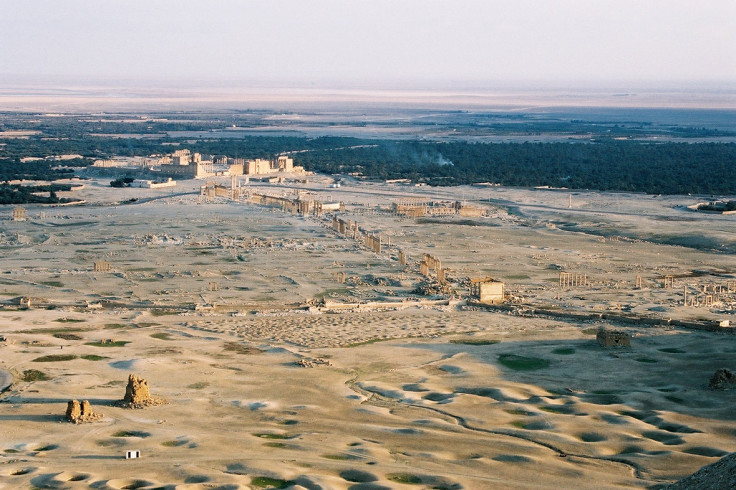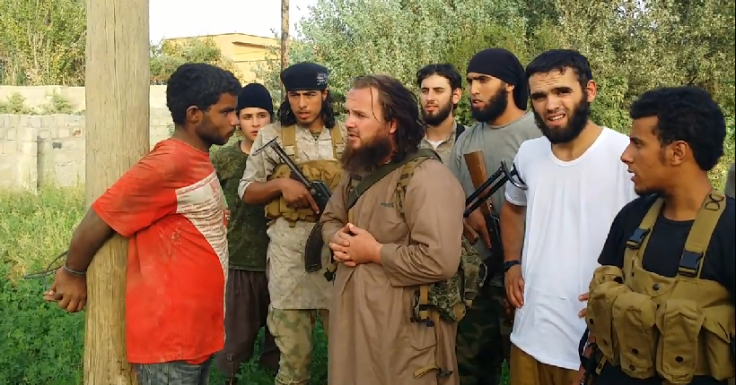Isis: Sunni tribe in eastern Syria pay bloody price for rebellion against Islamic State

In Syria's eastern province of Deir Ezzor (or Deir al-Zour) the al-Sheitaat tribe has been waging war against the Islamic State (Isis) ever since the terrorist group's foundation in 2014.
On May 20, the al-Sheitaat paid another harsh price for that rebellion.
The harrowing pictures that have emerged from Syria Thursday off the back of the IS offensive against Palmyra tell a bloody story of revenge: a line of eight young men, shot in the street, their blood running into the gutters.
In another video released by activists, a member of the tribe was executed with a bazooka, with sources inside Syria confirming to IBTimes UK that the murder took place on Wednesday in the city of Deir al-Zour.
It is not the first time the al-Sheitaat have paid a heavy price for their rebellion, which began as IS pushed east in July 2014. The tribesmen resisted the IS advance, leading to murders of fighters in a number of its villages.
We appeal to the other tribes to stand by us because it will be their turn next ... If (Islamic State) are done with us the other tribes will be targeted after al-Sheitaat. They are the next target.
In October, the Washington Post reported from Turkey that 700 members of the tribe were shelled, beheaded, crucified and shot after they rose up against the extremists in the Abu Hamam area.
Other reports said that the casualties could be as high as 900, making it the worst massacre that IS has ever carried out in Syria.
It was reported that many of the bodies lay in the streets as a warning to other rebels.

It prompted Sheikh Rafaa Aakla al-Raju, the head of the al-Sheitaat tribe, to plead with other tribes to join the fight in a video message posted on YouTube.
"We appeal to the other tribes to stand by us because it will be their turn next ... If (Islamic State) are done with us the other tribes will be targeted after al-Sheitaat. They are the next target," he said.
For the al-Sheitaat, a major grievance is that while the plight of other groups in IS-held territory has led to international outcry, their own attracted only minimal attention outside of Syria.
"We saw what the Americans did to help the Yazidis and the Kurds. But they have done nothing to help the Sunnis against the Islamic State," an al-Sheitaat fighter told the Post.
Much of that is due to the complex patchwork of militias and political affiliations that defines Syria's war. The West, which has come out against both Bashar al-Assad and IS, is loath to intervene with air strikes – at least, on the scale as it has in Iraq – lest they aid Assad.
Rather than being rewarded with support for their rebellion in the IS heartland of eastern Syria, the al-Sheitaat look set to become an unfortunate casualty of the geopolitical mess that is the international response to Syria's brutal civil war.
© Copyright IBTimes 2025. All rights reserved.






















